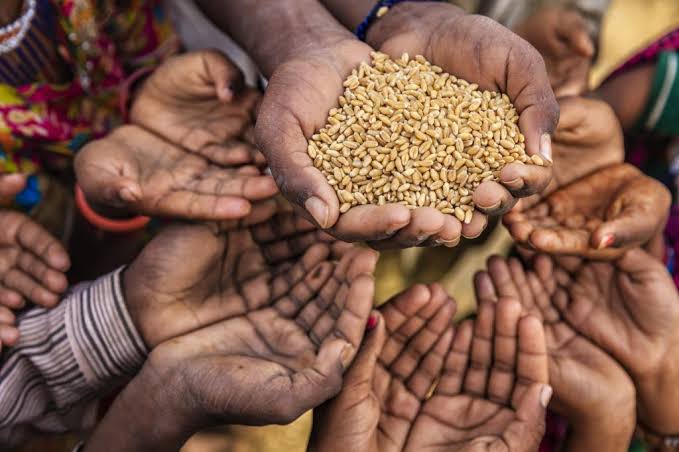
Faith Nyasuguta
More than half of Zimbabwe’s population will need food aid this year due to a devastating drought that has caused widespread crop failure, according to the country’s Cabinet on Tuesday. The Zimbabwe Livelihoods Assessment Committee (Zimlac) reported that approximately 6 million people in rural areas and 1.7 million in urban areas will require assistance.
Zimbabwe is among the hardest-hit countries by the El Nino-induced drought in Southern Africa, with Zambia and Malawi also experiencing severe food shortages. This drought is the worst Zimbabwe has faced in 40 years, according to government officials.
A recent crop assessment presented to the Cabinet revealed a significant maize production deficit, now estimated at 77 percent, an increase from last week’s predictions. The report stated, “A 77 percent reduction in production to 744,271 metric tonnes is estimated for the 2023/2024 summer season, indicating a major shortfall for both food and stock feed.”

In response to the severe food shortage, a local consortium of private millers plans to import 1.4 million metric tonnes of white and yellow maize from Brazil and other countries to cover the deficit. This importation is crucial to mitigate the effects of the drought on the population.
The United Nations and the United Nations Children’s Fund (UNICEF) have also appealed for financial assistance to help save millions from hunger. This follows the Zimbabwean government’s call for $2 billion in food aid from well-wishers and donors.
Zimbabwe has struggled to achieve food self-sufficiency since 2000, following land reforms led by former president Robert Mugabe, which disrupted agricultural production. The situation has been exacerbated by climate change, further hindering the country’s ability to grow enough food.
The drought has placed immense pressure on humanitarian organizations and the government to secure funding and resources to provide necessary aid. The scale of the crisis has highlighted the urgent need for international support to prevent widespread hunger and malnutrition among the affected population.
Efforts to address the food shortage include securing international aid and importing maize, but the scale of the deficit and the number of people in need underscore the severity of the situation. The government, alongside international organizations, continues to seek solutions to alleviate the crisis and support the millions of Zimbabweans affected by the drought.

Ultimately, Zimbabwe faces a dire food crisis, with over half of its population needing aid due to the worst drought in four decades. Significant efforts and international support are essential to mitigate the impact and provide relief to those in need.
RELATED:




